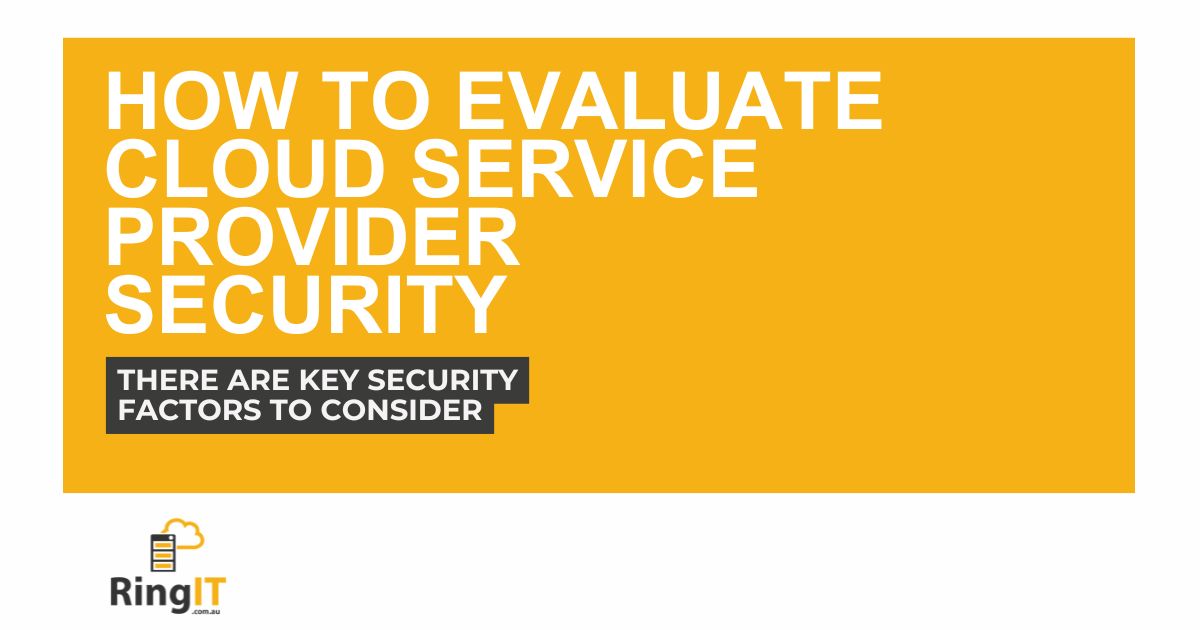With more businesses relying on cloud computing, security audits have become a key part of IT strategy. Cyber threats are constantly evolving, so it’s more important than ever to choose a cloud provider that takes security seriously.
How to Evaluate Cloud Service Provider Security should be a top priority when moving your storage, applications, or infrastructure to the cloud. Look at factors like security certifications, data encryption, access controls, and how they handle security incidents to make sure your business stays protected.
Key Security Factors to Consider
When selecting cloud service providers, you need to take into account some security features to make sure your applications and data are safe. The following are the most important security components to take into consideration.
1. Compliance and Certifications
Regulatory compliance is the best determinant of a provider’s security. Confirm that the provider is compliant with standards like ISO 27001, SOC 2, HIPAA, and GDPR. Compliance certifications ensure that the provider follows best practices in data protection, risk management, and privacy.
2. Data Encryption and Protection
A cloud service must be secure enough to provide sufficient encryption for data in transit and at rest. This protects data even when intercepted, so that unauthorised parties cannot read the data. Also, ensure the organisation has key management facilities where you can manage encryption keys in-house.
3. Identification and Access Management (IAM)
Access to your cloud infrastructure must be controlled. Look for vendors that have multi-factor authentication (MFA), role-based access control (RBAC), and identity federation to ensure that only authorised users are accessing sensitive applications and data.
4. Threat Detection and Response
Your cloud provider should implement proactive security measures to detect and respond to cyber attacks. Endpoint Detection and Response (EDR) solutions aid in the detection of suspicious activity and risk mitigation before it escalates.
5. Backup and Disaster Recovery
Data loss can be catastrophic for enterprises, thus backup and disaster recovery services are critical. A respectable supplier should offer dependable backup solutions, ensuring that your data is frequently backed up and easily recoverable in the event of a system breakdown or cyberattack. Office 365 Backup is one such service that businesses should consider to protect their critical email and collaboration data.
6. Network and Infrastructure Security
The cloud provider’s architecture should incorporate robust network security mechanisms including firewalls, intrusion detection and prevention systems (IDPS), and secure access gateways. Additionally, services like Network and Security Services help in strengthening your overall cybersecurity posture.
7. Web Protection and Secure Browsing
Cloud services often interact with web-based applications, making web protection a necessary feature. Solutions like Web Protection help in preventing phishing attacks, malicious downloads, and other online threats that could compromise your data.
8. Incident Response and Support.
Assess how the supplier manages security incidents. A good cloud service provider should have an incident response plan documented well, along with a special security team around the clock to handle any vulnerabilities or breaches.
9. Data residency and sovereignty.
Being aware of where your data resides is critical to security and compliance. There are some regulations that mandate data storage within geographic locations. Have your provider solutions available to support data residency requirements for your line of business.
10. Transparency and Audits
Your provider should be forthcoming about how they treat security and publish openly regularly audit results. Third-party security audits provide confidence the service has top-notch security standards.
Why Security Matters in Cloud Services
Businesses rely on cloud services for various operations, from data storage to productivity tools like Office 365 Explained. Although these services enhance scalability and efficiency, they can also lead to security problems if not well controlled. Cloud security failure can lead to data theft, financial loss, reputation loss, and non-compliance.
Because of this, one should choose a cloud provider that prioritises security. This not only gives protection to sensitive corporate data, but also ensures regulatory compliance and customer trust as well.
How We Ensure Cloud Security
RingIT recognises the need for secure cloud platforms. We provide end-to-end cloud solutions with robust security features such as encrypted data storage, real-time monitoring, next-generation threat protection, and multi-factor authentication. Our security-driven strategy protects your business against cyber attacks and allows you to unlock the full potential of cloud computing.
Securing Your Cloud Future
Selecting a safe cloud provider is one of the most critical business decisions that will impact your company’s longevity and data security. How to Evaluate Cloud Service Provider Security should be a key consideration in this process. To ensure a secure cloud environment and maintain its integrity, choose providers based on compliance standards, encryption protocols, access controls, threat detection capabilities, backup features, network security, and overall transparency.
Since increasing numbers of businesses are making the move to the cloud, having a solid security policy is imperative. No matter if you use Office 365 Explained, Office 365 Backup, Web Protection, Network and Security Services, or Endpoint Detection and Response (EDR), security for your cloud environment must be a top priority. With the right cloud provider, your business can grow securely, efficiently, and scalably.



